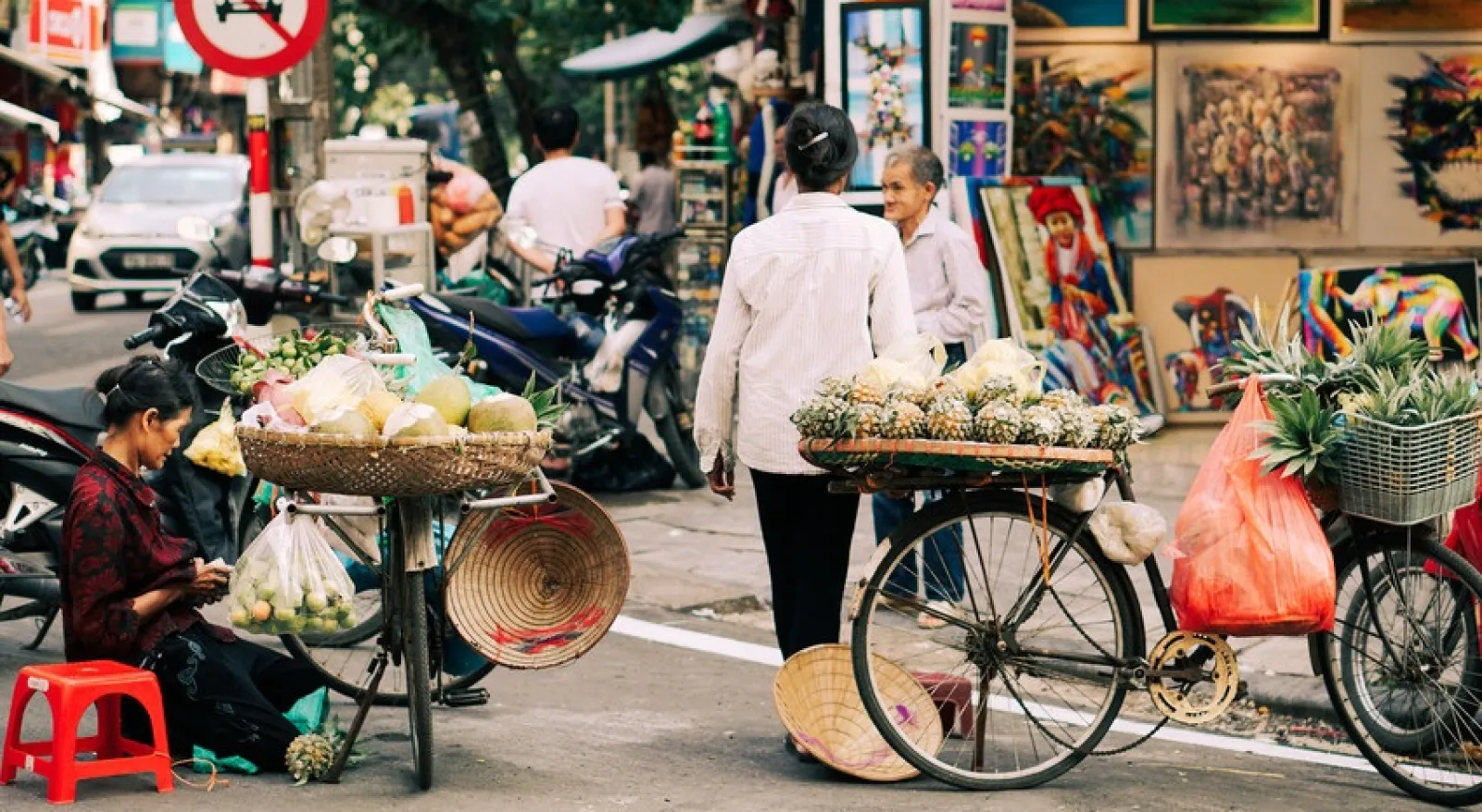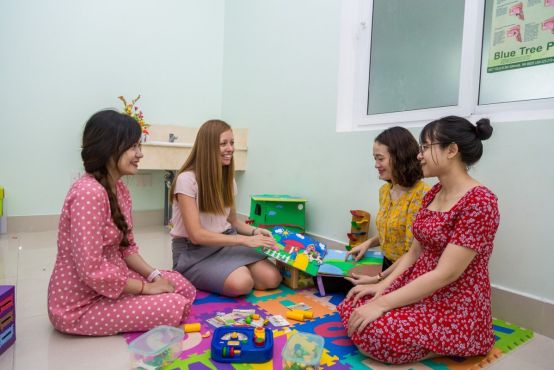
About Vietnam
The Socialist Republic of Vietnam stretches along the eastern coast of the Indochinese Peninsula, bordered by China to the north, and Laos and Cambodia to the west.
For more than a thousand years Vietnam was under Chinese rule, and this exerted an influence on most elements of society. Between the 9th to 14th centuries a sophisticated government and administrations were developed, and the country’s first university was founded. In 1858, French troops invaded and took control of the provinces of Vietnam. The southern portion of Vietnam became a French protectorate known as Cochin China, where the Nguyen dynasty ruled. In the north, local governments were run by Vietnamese officials, ruled by a French governor.
In 1954, after declaring independence from the French, North Vietnam adopted a highly centralised Soviet-style legal system. Conflict wracked the nation from 1955 until 1975, after which the north and south were reunified as the Socialist Republic of Vietnam. From their intense and long history of national and cultural survival, the Vietnamese have developed a strong independent streak and pride in their unique Vietnamese identity.
Today, the country’s population of 96.2 million represents 54 ethnic groups. Traditions and customs can vary significantly by region. The capital city is Hanoi (Ha Noi), the former capital of the Republic of Vietnam, and the largest city is Ho Chi Minh City (also known as Saigon).
Vietnam has been a development success story. Economic reforms since 1986, coupled with beneficial global trends, have helped propel Vietnam from being one of the world’s poorest nations to a middle-income economy in one generation. Poverty rates declined to 3.8 per cent in 2020. Thanks to its solid foundations, the economy has proven resilient through different crises. Growing at 2.5 to 3.5 per cent per year over the past three decades, the agriculture sector has supported economic growth and ensured food security. It contributed 13 per cent of GDP and 29 per cent of employment in 2021. Despite a rapidly growing national economy, poverty remains an issue in Vietnam, especially in more rural areas.
Health outcomes have improved along with rising living standards. Infant mortality rates fell, life expectancy rose, and Vietnam’s universal health coverage of 78 per cent of the population is higher than regional and global averages.
Australian volunteers have supported a wide range of partner organisations in Vietnam to achieve their development goals since 1985.
Learn more about the Australian Volunteer Program's work in Vietnam.
Key things to consider about volunteering in Vietnam
- Traffic conditions in Vietnam are different to Australia. Crossing roads and navigating traffic is very different to doing the same in Australia, be prepared to adjust.
- Air pollution is a significant challenge in Hanoi from October to March, when the city often has the worst air pollution in the world.
- Cultural sensitivity and awareness with every interaction. Be aware of the country's history, and approach conversations about history and politics with sensitivity.
- There is a different medical care standard to Australia. Hospitals may not be as well-equipped as those in Australia.
- There are different rules on the use of social media for the expression of personal or political views. Volunteers need to be aware of the laws relating to these issues.
- Vietnam is beautiful and diverse. Volunteers often take the opportunity to spend their annual leave visiting other areas of the country.
Partner spotlight
Trinh Foundation Australia is one of the Australian Volunteers Program’s longest-held partners, discover how the two organisations work together to drive positive, lasting change.
Learn more
Culture and religion
Vietnam is one of the most populated countries in Southeast Asia, and its traditional culture creates a rich context of customs. Major festivals are a big part of life in the country.
Religion
Most Vietnamese people do not follow organised religion, instead observing one or more Vietnamese folk religions. Folk religions were founded on cultural beliefs and were historically affected by Confucianism and Taoism from China, as well as by a long tradition of Buddhism.
These three teachings or tam giáo were later joined by Christianity, which now has a significant presence.
Dress
In the office the dress code is semi-formal. Men usually wear collared shirts without ties. Women usually wear a shirt and pants or a dress.
Language
Vietnamese is the primary language, and English is increasingly favoured as a second language. Some people speak French. Australian volunteers will have the opportunity to learn Vietnamese.
The program provides funding to support language lessons. More information on this process will be available during the onboarding process.
Explore our Pride Guides
LGBTQIA+ program participants must be aware of the country's context before undertaking an assignment. Pride Guides are designed to introduce key issues related to people with diverse SOGISEC & their participation in the program.
Learn more
Day to day life
Climate
Climate differs in the north and south of Vietnam.
In the north there are four seasons, with an annual temperature range from eight to 38°C.
In the south, the climate is tropical. The dry season lasts from November to April with an average temperature of 26°C. The rainy season begins in May and ends in October, and is characterised by sudden heavy rains, with an average temperature of 29°C.
It is important to note the effects of climate change on day-to-day life and weather patterns in Vietnam, this will look different based on location. According to the World Bank, Vietnam is at high risk of rising sea levels around the coastal and river-delta regions. There is also uncertainty how this will affect precipitation rates and the intensity of extreme weather events.
Air pollution is a significant challenge in Hanoi from October to March, when the city often has the worst air pollution in the world. Volunteers on assignment during these months will be provided with face masks and air purifiers.
Telecommunications
Internet and mobile access in Vietnam are inexpensive, reliable and available throughout the country.
Food and dining
Vietnam has a strong street food culture. Many notable Vietnamese dishes such as Bánh Mì (salad roll), Bánh Cuốn (rice noodle roll), Bún Riêu (rice vermicelli soup) and Phở noodles originated in the north and were introduced to central and southern Vietnam by northern migrants. Food from the north is often less spicy than southern dishes, as the colder northern climate limits the production and availability of spices.
Drinking is a large part of Vietnamese culture, and beer and rice wine are inexpensive.
The main cities have international supermarkets and people with dietary requirements, such as vegan, vegetarian, and gluten-free will be able to find food to meet their needs.
Accommodation
Volunteers will be supported to find suitable accommodation upon arrival in Vietnam. In most assignment locations, volunteers usually live in furnished apartments in buildings within the CBD.
Find out about our in-country allowances.
Transport
In Hanoi and other big cities, public transport is extensive & affordable; the most common and cheapest form of transport for volunteers is public bus.
Ride-sharing apps are the most popular & secure way to travel within main cities and are quite affordable.
Bicycles are an option if you want to make your own way around but be aware they often go missing. Walking is generally safe; however, most Vietnamese people do not walk due to weather conditions.
Motorbikes can be purchased or hired, but it's essential to note you will need to hold an Australian motorbike license and be covered by insurance. Vietnam has one of the worst rates of traffic fatalities in the world; riding a motorbike is only suitable for experienced drivers.
Personal safety
When it comes to your safety and security you must be willing to adapt your behaviour and lifestyle to minimise the potential for being a target of crime. Like anywhere in the world, crime does exist in Vietnam.
If applying to take up volunteering opportunities in Vietnam, it is a requirement that you research your assignment location. Successful applicants may be required to discuss expected living and working arrangements with their recruitment officer.
Personal safety issues constantly evolve, we recommend you keep an eye on Smart Traveller for current information.
Mobility and accessibility
We’re committed to ensuring that international volunteering is inclusive and accessible to Australians from a range of backgrounds, with diverse perspectives, identities and abilities.
To support this, Access and Inclusion Plans are available for volunteers with disabilities to assess their needs and ensure their living and working requirements are fully considered. Indigenous Pathways is an Indigenous-led program that focuses on providing culturally safe, flexible and tailored support for Aboriginal and Torres Strait Islander volunteers.
Before applying for a volunteer assignment in Vietnam, please do some further research on living in the country and on the organisation you are hoping to volunteer with. Successful applicants will have the opportunity to discuss expected living and working arrangements with their recruitment officer.